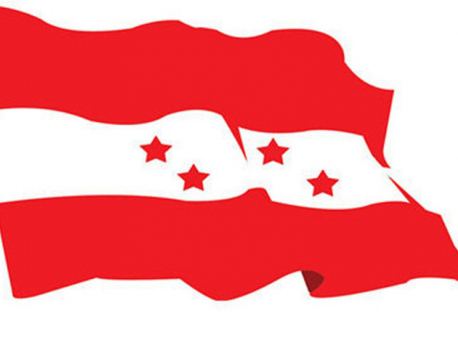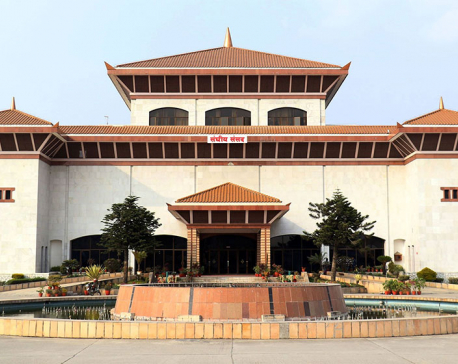
OR
Govt urged not to reduce reservation quota for disabled
Published On: February 13, 2019 01:05 AM NPT By: Republica | @RepublicaNepal
KATHMANDU, Feb 12: National Federation of the Disabled-Nepal (NFDN) has expressed serious dissatisfaction over a proposal of the government to reduce reservation quota for disabled people in the government jobs.
Issuing a press statement on Tuesday, the NFDN said the government had decided to reduce the reservation quota to 3 percent from existing 5 percent without consulting the stakeholders. The government has made the proposal in the Federal Civil Service Bill, which is under consideration in parliament.
While stating that the decision undermines the fact that over 2 percent of the country's population has disabilities of one form or the others, the NFDN has asked the government to revoke the decision and maintain the quota to previous five percent. According to a study conducted by the World Bank and the Word Health Organization in 2011, some 10 to 15 percent of the world's population has some form of disability.
Similarly, the NFDN has also expressed concerns over the government decision to reduce the age limit for disabled people to compete in the government jobs to 35 years from existing 40 years. The umbrella organization of organizations working for the cause of physically challenged people has also urged the government to restore the quota of teachers meant for the classes for physically disabled people.
The government introduced a reservations policy for the first time in the Interim Constitution promulgated after the 2006 people's movement, in order to ensure the participation of different groups in various state organs.
As per the reservation policy introduced in the Civil Service Act amended in 2007, 45 percent of the total vacancies in government service were allocated to various marginalized and backward communities. The Civil Service Act (amended in 2007) reserved 33 percent of total seats for women, 27 percent for candidates from indigenous nationalities, 22 percent for Madhesis, 9 percent for Dalits, 5 percent for people with disabilities and the remaining 4 percent for those from geographically backward regions.
Revising the previous reservation quota, the Federal Civil Service Bill proposes 33 percent of the total reserved seats for women, 24 percent for candidates from indigenous nationalities, 20 percent for the Madhesi community, 9 percent for Dalits, 4 percent for Tharus and 3 percent each for Muslims and those with physical disabilities. The remaining 4 percent has been allocated for candidates hailing from backward regions including Achham, Kalikot, Jajarkot, Jumla, Dolpa, Bajhang, Bajura, Mugu and Humla districts in mid-western and far-western Nepal.
You May Like This

NC slams govt for annulling political appointment by erstwhile govt (with full text)
KATHMANDU, July 5: Nepali Congress has slammed government for annulling all political appointments made by the then government after the... Read More...

Govt to propose budget on May 29 after parliament approves govt plans
KATHMANDU, May 27: The budget for current fiscal year 2018-2019 will be presented on May 29, Tuesday 4:00 PM. ... Read More...

Rural municipality to hold salaries of govt teachers not sending their children to govt school
JAJARKOT, June 30: A rural municipality in Jajarkot district has decided to stop the salaries of teachers at government schools in... Read More...











Just In
- Challenges Confronting the New Coalition
- NRB introduces cautiously flexible measures to address ongoing slowdown in various economic sectors
- Forced Covid-19 cremations: is it too late for redemption?
- NRB to provide collateral-free loans to foreign employment seekers
- NEB to publish Grade 12 results next week
- Body handover begins; Relatives remain dissatisfied with insurance, compensation amount
- NC defers its plan to join Koshi govt
- NRB to review microfinance loan interest rate







Leave A Comment